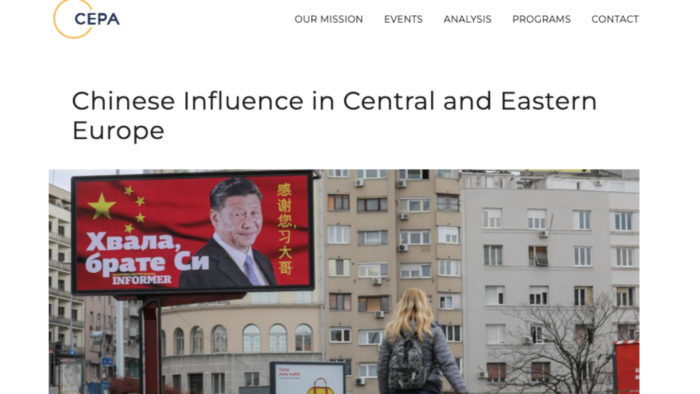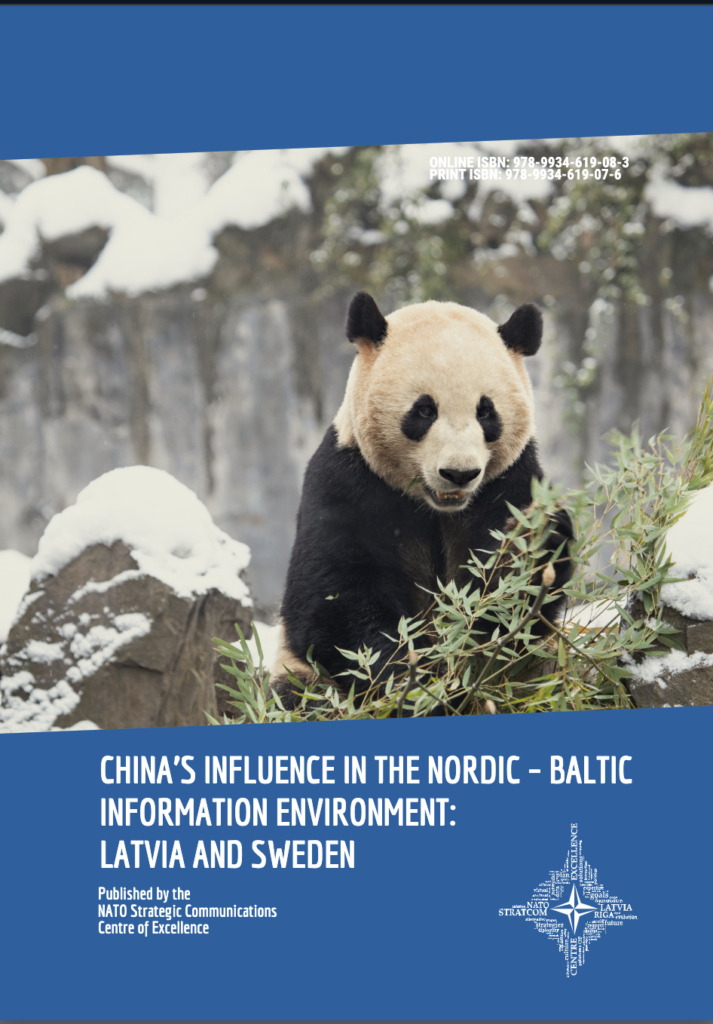Over the last couple of years and especially since the Covid-19 pandemic, Chinese state media’s rhetoric has become increasingly aggressive towards the West, mirroring the country’s broader awakening to its rising power. A recent editorial piece in the Global Times, the Chinese Communist Party’s prime English-language media outlet, argues that China needs to drive a wedge between the US and its European allies in order ‘to tear down the wall called ‘the West’ that the US has built specifically against China”: According to the Global Times piece:
August 3, 2021 Through a series of efforts, it is entirely possible for China to substantially weaken the consensus between the US and the West on China. […] In order to achieve this, China should first adopt different policies toward the US and its allies, while at the same time treat members of the Five Eyes alliance and other Western countries differently. Previously, China attached more importance to maintaining China-US relations. In the future, we will devote more of our resources to European countries and bring about a change in direction of diplomatic strategy. We need to try to play down the so-called China-West frictions and talk more about the China-US conflict. The flashpoint of the so-called China-West conflict lies in ideological frictions in areas such as human rights disputes. China can engage in more communication with Western countries from the perspective of cultural diversity, advocate the notion of harmony without uniformity, and try to reduce the number of specific friction points. […]Constantly expanding the scale of economic cooperation between China and the West is the key. In the past, the US was the priority when it came to cooperation. In the future, more attention should be paid to upgrading collaboration with Western countries other than the US. […]After years of efforts, it will be possible for China to tear down the wall called “the West” that the US has built specifically against China.
Read the rest here.
To achieve its objective of driving a wedge between the US and its Western allies, China seeks to spend more resources on Europe, engage in more communication, and expand economic cooperation while at the same time avoid talking about ideological frictions (i.e., human rights). This is where Europe’s political and business elites come into play: China has increased its resources devoted to creating lobby groups, friendship associations, academic initiatives, and business councils in various European countries in order to foster elites sympathetic to China. Some of the most influential pro-China elite groups are based in France, the UK, and Germany.
In France, the France China Foundation was founded in 2012 to “encourage the development of relationships between French and Chinese leaders, to stimulate their interest in the other country and to inspire them to set up joint projects.” The foundation claims to “rely on political and institutional support” and gathers high-profile politicians and businesspeople from France and China, including several people linked to the Chinese government and defense circles such as financier Allen Guo, consultant Casey Kang, and business magnate Jack Ma. One of the foundation’s members, former French Prime Minister Jean-Pierre Raffarin, already openly promotes China’s attempted power grab in Europa. According to a recent interview with Raffarin:
The Belt and Road Initiative is a Chinese project, for the Chinese, but also for others. We have a place within it but corresponding to Chinese objectives. The initiative is about building a continent, Eurasia, based on a partnership between Asia and Europe. The Belt and Road Initiative is the backbone of this new continent. The American continent was the earth’s centre of gravity, and now Eurasia must take its place. A Chinese expression often comes back to me: “He who possesses Europe possesses the world”. […] Ten years ago, we saw the US as our allies. In 20 years, I predict many will say the same about China.
China’s main vehicle for elite capture in the UK is the 48 Group Club, a business network “promoting positive Sino-British relations” founded in the 1950s that today gathers the who’s who of the British power elite — including former Prime Minister Tony Blair, members of the House of Lords and senior media and business executives — and pairs them with senior Chinese Communist Party operatives, including several former Chinese ambassadors, a former vice president, and a former vice-minister. The group’s website publishes articles from Chinese state-led media outlets such as Xinhua and China Daily Global, and its members openly advocate for Chinese policy objectives: When asked in 2014 if there are any differences between anti-terror efforts in the West and China, Tony Blair responded:
In this regard, yes, there are double standards. […] There are no differences between Western anti-terror efforts and China’s. We are all dealing with the same issue, and we try to deal with it in the same way. China is trying to deal with the problem through security measures, education, and providing development, that’s also what we are trying to do.
According to an investigation by Die Welt, the German equivalent of the France China Foundation and the 48 Group Club was founded in 2019 under the name China-Brücke (China-Bridge) by several high-level politicians and managers, including the vice president of the German parliament and several managers from Chinese companies:
June 15, 2021 Six months later, Friedrich [Hans Peter, vice president of the German Bundestag, ed.] met ten men and women in an office building on Kurfürstendamm in Berlin. They founded the “China Bridge”, allegedly a counterpart to the Atltantik Bridge — the association in which representatives from politics, business and science have wanted to strengthen the links between Germany and the USA for almost 70 years. It was only after public pressure from human rights organizations and after many months that the “China-Brücke” published the names of its board members, including representatives of Chinese companies such as Alibaba or Huawei and a Communist party-friendly publicist who is also considered to be a close confidante of the former Chinese ambassador Shi. [Translated with Google Translate]
Read the rest here.
In February 2021, Chinese state media reported about a video conference between China-Brücke and China’s National People’s Congress (NPC) where a Chinese Politburo member promised to support the group “in strengthening mutual understanding and enhancing consensus with the Chinese side and make joint efforts to build a broader and more solid bridge of win-win cooperation between the two countries.” In May, China-Brücke chairman Friedrich announced that the group would not “interfere in individual political issues of the day” but rather seek to establish itself as a “long-term bridge between the two countries” – arguably to avoid touching any sensitive issues that might harm China’s reputation in the West.









COMMENTS
Comments are closed here.